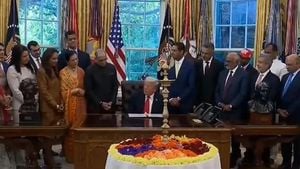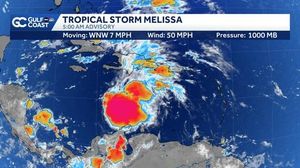Southeast Asia is at a crossroads when it regards the sustainability of its mining industry as electrification and the demand for electric vehicles (EVs) fuel the need for rare earth minerals. Battery recycling, innovative extraction methods, and regulatory changes are becoming pivotal as countries aim for greener practices, but it’s not without significant challenges.
Five years down the road, the entrepreneurial spirit of EcoNiLi, founded by a Malaysian entrepreneur, has seen remarkable growth. The company has evolved from its humble origins to establishing four factories across three countries, boasting the impressive capacity to recycle 86,000 tonnes of lithium-ion batteries annually. These batteries, pivotal to electric vehicles, pose major environmental challenges.
Globally, electrification is championed as key to mitigating climate change, considering fossil fuels are responsible for over three-quarters of greenhouse gas emissions. The surge in demand for lithium, nickel, and cobalt could quadruple by 2040, according to projections from the International Energy Agency. Yet, as with all progress, this growth has its environmental drawbacks. Extracting these finite minerals often leads to pollution and labor issues, drawing criticism from rights organizations.
One of the stark challenges lies not just with the initial extraction but also with the management of used batteries. Discarded batteries, laden with toxic chemicals, present serious risks to both human health and the environment. Krista Shennum from Climate Rights International advocates for the introduction of policies mandatorily requiring recycled content levels within EV batteries to lessen the urgency for extracting more virgin minerals.
Contrastingly, the recycling efforts across Southeast Asia highlight disparities compared to more stringent standards seen in regions like China and the European Union, where the reuse of battery components is already mandated. There’s growing anxiety among experts over the risk of Southeast Asia lagging behind as it strives to transition its gas-guzzling transportation sector to electric, particularly with ambitious targets set by nations like Indonesia, which aims for 13 million motorcycles and 2 million cars on the road by 2030.
This switch to electric mobility brings with it the promise of surplus used batteries – estimates indicate Southeast Asia could be inundated with some 2,166 gigawatts per hour of used batteries by 2040, enough to power more than one million households for over a year. Yet, currently less than 25% of the 62 million tonnes of e-waste generated globally last year was recycled, and some Southeast Asian nations fare even worse.
For examples, Singapore generates around 60,000 tonnes of e-waste annually, but only about 6% sees recycling efforts. Amy Khor, Singapore’s Senior Minister for Sustainability and the Environment, emphasized the need for recycling batteries to meet their circular economy goals and reduce reliance on their lone landfill, Semakau. Meanwhile, Indonesia's e-waste recycling rate remains at about 17%, and the recent creation of the Indonesia Battery Corporation aims to address this, albeit challenges persist with e-waste infrastructure.
Shifting gears to nickel production, Indonesia is known as the world’s leading supplier, producing over half of the global supply. The irony here is palpable; as Indonesia ramps up its nickel production, the environmental toll has been steep, with estimates of 187,000 to 378,000 acres of forests lost over the last two decades due to mining activities. Activists like Julfikar Sangaji from the NGO Forum Studi Halmahera highlight the destruction wrought on ecosystems and communities due to nickel extraction.
Recycling batteries offers hope, albeit not without its hurdles. Erik Prasetyo from the Norwegian University of Science and Technology cautions against viewing battery recycling as the end-all solution. The process itself can be energy-intensive and rely on harsh chemicals, thereby creating new vectors of potential environmental harm.
For real progress to manifest, authorities and operators must navigate these complications effectively. The international recycling industry is poised for growth, with projections estimating capacity could quintuple by 2030. A significant chunk of this development is centered predominantly within China, the forerunner of lithium-ion battery production.
Corporate initiatives, like the sustainable practices being adopted by Aclara Resources, serve as guiding lights as well. The company’s Circular Mineral Harvesting, for example, highlights how sustainable practices can mitigate the challenges associated with mining. They have innovated processes to recover 95% of the water and 99% of the chemicals used for extracting rare earths from ionic clays, with no need for explosives.
Such advancements are not mere footnotes – they can set new benchmarks for reducing carbon emissions typically associated with traditional extraction operations. Aclara is taking things one step farther by committing to full reforestation of mined areas, ensuring mining can align with environmental recovery.
Global initiatives, like the World Bank's Climate-Smart Mining initiative, exist to assist developing nations, allowing them to manage mineral resources ethically and sustainably. This helps balance their economic aspirations against the pressing need for environmental stewardship. Aclara’s efforts echo these broader goals by supporting local economies, demonstrating the tightrope of resource extraction alongside ecological protection.
The United Nations Global Compact serves as another significant player, providing companies with guidance on adopting responsible mining activities. Through its framework, organizations are encouraged to maintain transparent and sustainable practices, marking their commitment to these principles. The heightened demand for rare earth minerals magnifies the necessity for the mining sector to transition to more responsible practices.
Already, the world is witnessing how rare earth element extraction is becoming intertwined with sustainability imperatives. While the need for such materials is surging due to the growth of clean technologies like wind turbines and electric motors, extracting them does not have to come at the expense of the environment or local people’s well-being. Pioneering companies like Aclara are forging paths showing it’s possible to meet rising demands without sacrificing ecological integrity.
Meanwhile, Sibanye Stillwater, another prominent player, has recently welcomed positive news with the U.S. Department of Treasury's revision of tax credits, granting them 10% off major operational costs linked to mining platinum and palladium. This tax credit offers the company additional resources for projects, even as it still grapples with the required layoffs of almost 700 workers. Heather McDowell, the company's vice-president, acknowledges how this development could eventually lead to job creation down the line.
Despite the backdrop of uncertainty for many miners, there’s hope imbued within these changes. McDowell noted how the company had to navigate the federal changes complexly and emphasized the upside of these supportive measures. Sibanye Stillwater is poised to invest heavily over the ensuing years – which could usher back jobs, with the local union president optimistic yet grounded about the pressing realities of current layoffs.
“The future is important to all of us because these are the mines we built,” says Dan Beluscak, urging investment plans to revitalize operations. Despite the hard times, expressions of hope flicker from leaders like McDowell, who aim to inspire their teams during this tumultuous transition. Yet, amid job uncertainties, Beluscak urges vigilance due to the inherent dangers of their work. The mining sector faces pivotal moments, as sustainability is increasingly carved as both challenge and opportunity.



